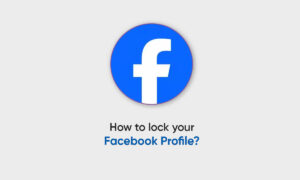The U.S. has accused Facebook of violating federal anti-robotics laws and making it easier for businesses to exploit users with phone calls or text messages.
In the 9-0 decision of Justice Sonia Sotomayor, the judges supported Facebook, arguing that the text messages sent by the social media company did not violate the 1991 Federal Law on Telephone Consumer Protection Act (TCPA).
The case highlights the challenge that judges face in enforcing old laws with modern technologies. The ruling calls on the U.S. Congress to amend a law enacted three decades ago to prevent telemarketing abuse.
“Join our channel on Telegram”
“By reducing the scope of the TCPA, the court will allow companies to attack the public without interrupting unwanted calls and texts,” Democratic Senator Edward Markey and Democratic spokeswoman Anna Ishu said in a U.S. statement.
The court ruled that Facebook’s actions to the technical definition of behavior prohibited by law before the rise of modern cell phone technology – did not send text messages without permission.
Montana resident Nova Dougid filed a lawsuit in federal court in California in 2015 alleging that Facebook sent several automatic text messages without her permission. Park Menlo Park, a native of California, alleges that the use of an automatic telephone dialing system violates the Telephone Consumer Protection Act.

Facebook said activity-related messages were linked to users’ cell phone numbers when users tried to log into their accounts from a new device or Internet browser.
“As agreed by the court, the provisions of the law are not intended to prohibit companies from sending targeted security notices, and the court decision allows companies to continue working to keep their customers’ accounts secure,” Facebook said in a statement.
Dougheid’s lawyer Sergei Lemberg said anyone can legally avoid liability as long as they use technology similar to Facebook.
In this case, Facebook’s system of sending automatic text messages is similar to the traditional automatic dialing system – called autodial – used to send robots.
“The Dugwid dispute with Congress did not define an auto dealer as politely as he would have liked,” Sotomayor wrote in the judgment. The law requires the use of a “random or sequential number generator”, but the court ruled that Facebook’s system “does not use such technology”.

Duguid said that although he was not a Facebook user and had never been, Facebook repeatedly sent account login notifications via text message to his cell phone. Despite several attempts, Duguid said he could not prevent Facebook from being “robotized”.
Duguid may have been given a phone number previously associated with the Facebook user who chose to receive notifications in response to Facebook.
A federal judge dismissed the case but in 2019 San Francisco’s ninth U.S. It was restored by the Circuit Court of Appeals. The Ninth Circuit adopted a broader view of the law, which prohibits not only devices that automatically dial randomly generated numbers, but also randomly generated storage numbers. The National Association of Federal Insured Credit Unions said the decision to “reduce auto dealers” was a victory for the credit union industry.
“We have long fought for this resolution to ensure that credit unions and credit unions can contact their members with important, time-confidential financial information without fear of breach of credit,” the association said in a statement.
|Via|
















